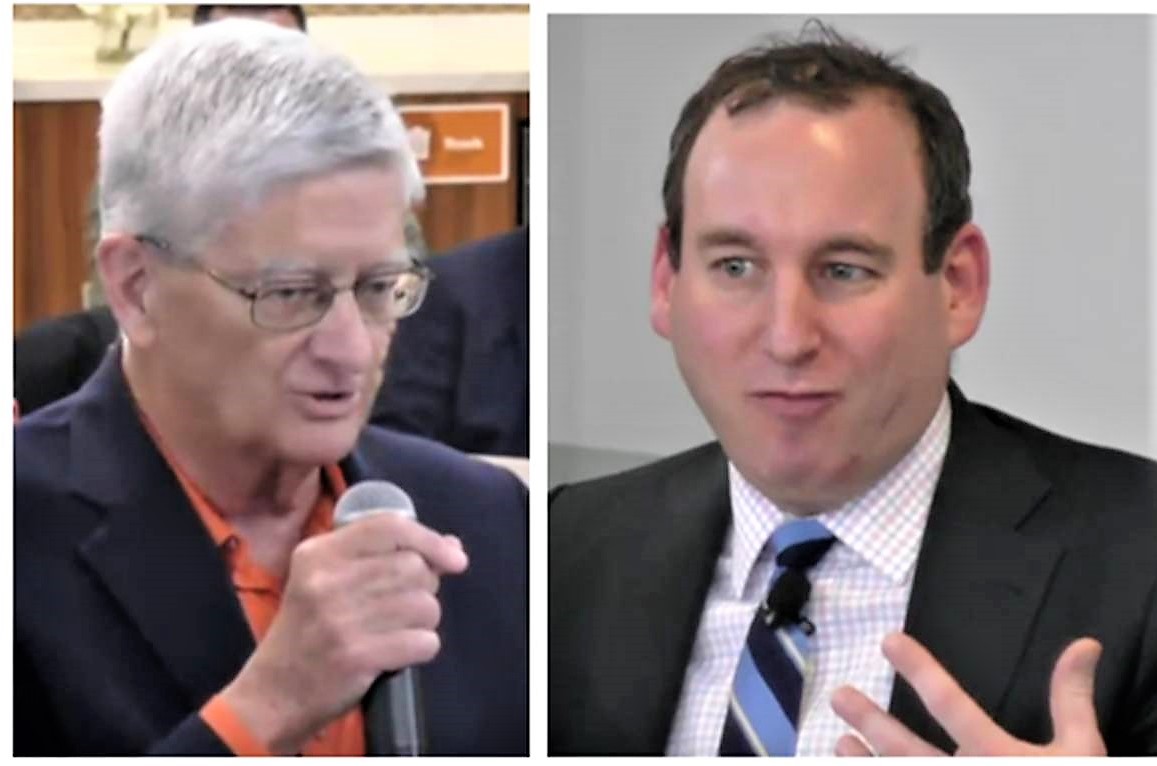Accusation of ACA 'Shakedown' Triggers 'Lie' Response During C-Band Spectrum Sale Discussion
The smarter way to stay on top of the multichannel video marketplace. Sign up below.
You are now subscribed
Your newsletter sign-up was successful

After congratulating the New America think tank for running "the most unbalanced panel in the history of panels," C-Band Alliance lobbyist Preston Padden accused the American Cable Association of demanding a $200,000 per system payment to "go away" from the current FCC plan allowing private sale agreements for use of the C-band spectrum, especially for 5G wireless ventures.
Ross Lieberman, ACA's senior vice president of government affairs, dismissed Padden's charge.
"It's just a lie," Lieberman said. "You've never suggested any number. You weren't even in the room the last time we met. You said there was no harm. That was the end of the discussion. I have no idea what you're talking about."
The FCC is contemplating allowing wireless carriers to compensate incumbent satellite operators for giving up spectrum, as the C-Band Alliance has proposed, but ACA says cable ops should get a piece of that pie if that is the way the commission goes.
Charter Communications vice president of regulatory affairs Colleen King, another panelist at the Feb. 5 session, offered that, "We think the best way for us to get access to spectrum ... is through an FCC auction." She acknowledged that Charter "will continue to meet with you" because "we like 5G. We'll talk to everybody."
Veteran lobbyist and TV exec Padden is now executive VP, advocacy and government relations for the C-Band Alliance, a new association representing four European-based satellite carriers -- Intelsat, SES, Eutelsat and Telesat -- that control large swaths of the spectrum used to transmit network programming to cable headends and TV stations. Padden was the first to grab a microphone during the Q&A session after the panel presentation; he directed his comments to Lieberman.
"We have told you a hundred times that we'll cover all of your members' costs. We put it in writing," Padden said. "You came to see us and said you'd go away for $200,000 per cable system. "There's a word for that. It's 'shakedown,'" Padden said with a flourish.
The smarter way to stay on top of the multichannel video marketplace. Sign up below.
His accusation triggered Lieberman's adamant reply.
In response to another question about a possible FCC auction, Lieberman added, "Parties involved in the process have made it incredibly difficult for the FCC to find a path forward. There has not been a coalescing of support for the private sale."
Incendiary Title But No Easy Solution
The New America program, provocatively titled "The Great Airwaves Robbery II," featured four speakers: Lieberman and King plus spokespersons for Google and Citizens Against Government Waste. All of them questioned the current FCC plan to reallocate the C-band spectrum in ways that could -- as New America's organizer put it -- send "$15 billion-40 billion" to the four companies that now control that spectrum.
Michael Calabrese, director of New America's Wireless Future Project and moderator of the panel session in Washington, explained that he put together the session because of growing attention to the underutilized C-Band (3700-4200 MHz), which is widely sought as a resource for emerging 5G wireless services. The FCC proposed last July to reallocate at least the bottom 200 MHz of C-Band for exclusive licensing to mobile carriers and others triggered a wave of criticism about who will benefit financially from the sale.
"The comment cycle is completed," Calabrese told Multichannel News. "Presumably an initial staff recommendation and Chairman’s input could occur soon [although] we don’t really expect an Order before May or June at the earliest."
"But now that they have a record, the Chairman will likely chart a course forward for the staff," he continued. "All the groups on stage (and others) are also encouraging Congress to get interested. ... That has been the case in parallel situations in the past when this much revenue is at stake."
During the panel discussion, Thomas Schatz, president of Citizens Against Government Waste, insisted that the carriage license "is not a property right" and that funds from any sale "belong to taxpayers, not broadcasters." He urged that, "Congress must decide where proceeds should go."
In his opening remarks, Lieberman opined that the situation requires FCC action soon to achieve "full optimization of capacity." He warned that the C-Band Alliance members "will act as if they are monopolists" if they control and benefit solely from the spectrum sale.
"Their only restraint is that they [could] drive prices so high that programmers go to terrestrial," that is to non-satellite distribution, Lieberman said. He noted, however, that high-capacity internet distribution is not currently an option to many rural and small-town cable headends, ACA's member base.
Charter's King concurred that the FCC should make a decision about spectrum sale. "Not the private satellite companies," she said. "The FCC should focus on the easiest, quickest way" to resolve the reallocation.
But Lieberman's last word was that, "It will take a lot longer than anyone expects."
Contributor Gary Arlen is known for his insights into the convergence of media, telecom, content and technology. Gary was founder/editor/publisher of Interactivity Report, TeleServices Report and other influential newsletters; he was the longtime “curmudgeon” columnist for Multichannel News as well as a regular contributor to AdMap, Washington Technology and Telecommunications Reports. He writes regularly about trends and media/marketing for the Consumer Technology Association's i3 magazine plus several blogs. Gary has taught media-focused courses on the adjunct faculties at George Mason University and American University and has guest-lectured at MIT, Harvard, UCLA, University of Southern California and Northwestern University and at countless media, marketing and technology industry events. As President of Arlen Communications LLC, he has provided analyses about the development of applications and services for entertainment, marketing and e-commerce.

